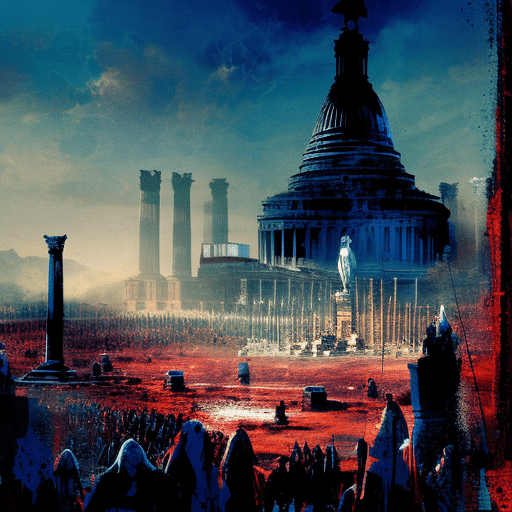The First Man in Rome: A Tale of Power and Politics in Ancient Rome
One-line summary: “The First Man in Rome” is a captivating historical novel that delves into the complex world of ancient Rome, exploring the rise of Gaius Marius and Lucius Cornelius Sulla, and the political intrigue that shaped the Republic.
In Colleen McCullough’s epic novel “The First Man in Rome,” readers are transported to the tumultuous world of ancient Rome, where power, politics, and personal ambition collide. Set during the late Roman Republic, the story follows the lives of two influential figures, Gaius Marius and Lucius Cornelius Sulla, as they navigate the treacherous waters of Roman politics.
The Rise of Gaius Marius
The novel begins with the introduction of Gaius Marius, a talented military leader who rises from humble origins to become one of the most powerful men in Rome. McCullough vividly portrays Marius’s determination and ambition as he strives to overcome societal barriers and establish himself as a force to be reckoned with. Through Marius’s journey, readers gain insight into the social and political structures of ancient Rome, as well as the challenges faced by individuals seeking to climb the ranks of power.
The Ambition of Lucius Cornelius Sulla
Another central character in the novel is Lucius Cornelius Sulla, a cunning and ambitious patrician who is driven by his desire for power and glory. Sulla’s character serves as a stark contrast to Marius, highlighting the different paths to success in Roman society. McCullough skillfully explores the complex relationship between Marius and Sulla, as their ambitions clash and their rivalry intensifies. Their interactions provide a fascinating glimpse into the intricate web of alliances and betrayals that characterized Roman politics.
The Political Intrigue of the Late Roman Republic
“The First Man in Rome” delves deep into the political landscape of the late Roman Republic, offering readers a detailed and immersive portrayal of the inner workings of the Roman government. McCullough expertly weaves together historical events and fictional elements to create a compelling narrative that sheds light on the power struggles, corruption, and machinations that defined this period in Roman history. From the Senate to the military campaigns, the novel explores the various power dynamics at play and the lengths to which individuals would go to secure their positions.
Throughout the book, McCullough’s meticulous research and attention to detail shine through, bringing ancient Rome to life and providing readers with a rich understanding of the era. The author’s vivid descriptions and well-developed characters make it easy to become fully immersed in the story, while also gaining valuable insights into the political and social climate of ancient Rome.
- The novel offers a fascinating exploration of the rise of Gaius Marius and Lucius Cornelius Sulla, two influential figures in ancient Rome.
- Readers gain a deep understanding of the complex political landscape of the late Roman Republic.
- The book highlights the ambition, power struggles, and political intrigue that shaped the Republic.
“Power is not a means, it is an end. One does not establish a dictatorship in order to safeguard a revolution; one makes the revolution in order to establish the dictatorship.” – Colleen McCullough, The First Man in Rome
In conclusion, “The First Man in Rome” is a captivating historical novel that offers a compelling glimpse into the world of ancient Rome. Through the lives of Gaius Marius and Lucius Cornelius Sulla, readers are taken on a journey filled with ambition, power struggles, and political intrigue. McCullough’s meticulous research and vivid storytelling make this book a must-read for anyone interested in Roman history or political drama.












